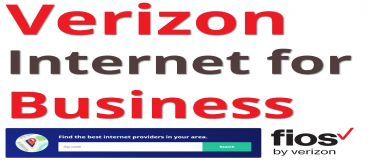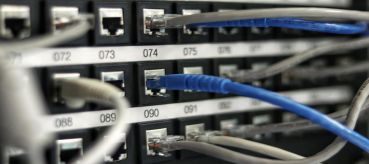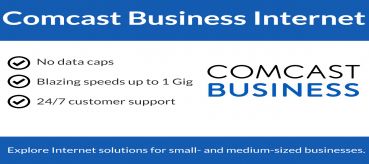What You Can and Can’t Deduct When Starting A New Business?

If you're thinking of starting a business with your own money, you'll be relieved to learn that many of the expenses you'll spend are tax-deductible.
We'll go over what you can and can't deduct at the initial period of a firm in this post, so you can spend wisely and earn a higher return come tax time.
Related: How To Start A Business Online Using Internet
Startup Phase
Those for starting a business are classified differently than expenses for running a business. The difference between the two is determined by when the cost is incurred.
Until you open your doors for business or start collecting income from the business, you are officially in the "startup phase" in the eyes of the IRS. During this time, your expenses are classified as starting charges.
Costs are classified as business expenses once you've launched or made your first sale.
During the initial phase, however, not everything can be claimed as a startup expense. We'll start with what you can't deduct and then move on to what you can deduct throughout your business's initial phase.
Need Internet For Business?
Call Us at 1-888-317-7540
What you can’t deduct:
The amount of beginning costs that can be deductible in the first year of operation is limited. If you spend more than $50,000 on starting costs, your first-year deductions will be reduced by the amount you spent more than $50,000. For example, if your startup costs are $52,000, you can only deduct $3,000 in your first year of the company ($5,000 minus the amount you spent over $50,000).
You can amortize the remaining costs over the next 15 years after the initial year. Following this logic, if your starting costs surpass $55,000, you won't be able to deduct any of them in the first year and will instead have to amortize them entirely.
What you can deduct during the startup phase
The amount you can deduct as initial costs is determined by the total amount of charges incurred while starting your business. If your starting costs are less than $50,000, you can deduct $5,000 from your first year of business expenses.
During the startup phase, deductible expenses are divided into two categories: research and the actual establishment of the business. Let's look at the several types of startup costs that can be deducted:
The amount you can deduct as initial costs is determined by the total amount of charges incurred while starting your business. If your starting costs are less than $50,000, you can deduct $5,000 from your first year of business expenses.
During the startup phase, deductible expenses are divided into two categories: research and the actual establishment of the business. Let's look at the several types of startup costs that can be deducted:
Investigating the establishment or acquisition of successful commerce or business.
Certain research expenses can be written off as starting costs. These are some of them:
Market research
Analyzing the product
Exploring possible business locations
The cost of getting a company up and running.
As part of the setup phase, you can additionally claim the following expenses:
Employee training and wages
Consultant fees
Advertising
Travel costs
Incorporation or organization fees
What deduction I can do if my business never launches?
Let's pretend you've invested a lot of time and money into getting your business up and running, only to have your goals derailed by something unforeseen. While you may not be able to reclaim that time, you may be able to reclaim some of your money through tax benefits.
You may be allowed to deduct your set-up expenditures even if your firm never opens. Personal expenses incurred while studying the formation or acquisition of a certain firm, for example, can be deducted under “miscellaneous expenses” on Form 1040 (Schedule A).
Whether you put a lot or little money into your new business, being able to deduct or amortize the costs will have a positive influence on your personal finances. Knowing what you can and can't deduct when starting a new firm will help you make wise tax and startup cost decisions.
Related Posts
Wed, Apr 22, 2020 11:34 PM
Find Verizon Internet for Business Near You!
Verizon provides Internet for business in more than 40 states in the US, speeds are limited to 15 Mbps, and many businesses will need more juice. If you're in the Northeast, you can enjoy high-speed Internet via Verizon's FiOS. This is ideal for businesses that need high speeds, such as restaurants, hotels, medical facilities, hospitals, schools, and other businesses.
Thu, Apr 23, 2020 12:00 AM
5 Best Small Business Internet Service Providers (2021)
The following Internet Service Providers are not listed in any particular order, but we have ranked these five companies as worthwhile due to some key factors such as speed, reliability, cost, and overall customer satisfaction.
Mon, Apr 20, 2020 11:13 PM
Business Internet Guides for Entrepreneurs
Small businesses need to grow, but how big should your business become before you buy it online? Whether you started out as a sideshow or a brick-and-mortar business, successful small businesses are finding it increasingly difficult to decide when to shell out money for an Internet business.
Thu, Apr 23, 2020 11:52 PM
Why Business Internet is More Expensive Than Residential Internet
This question is asked so often today that it seems worth explaining, but here are 5 reasons why business Internet is more expensive than Residential Internet packages.
Fri, Apr 24, 2020 5:17 AM
Comcast Internet For Business: Internet, Phone, TV, and Other Solutions for your Business.
Comcast Business is US largest cable provider for small and medium-sized businesses and has become a force in the market, recognized by leading industry over the past two years as one of the fastest-growing providers of high-speed broadband to business customers




